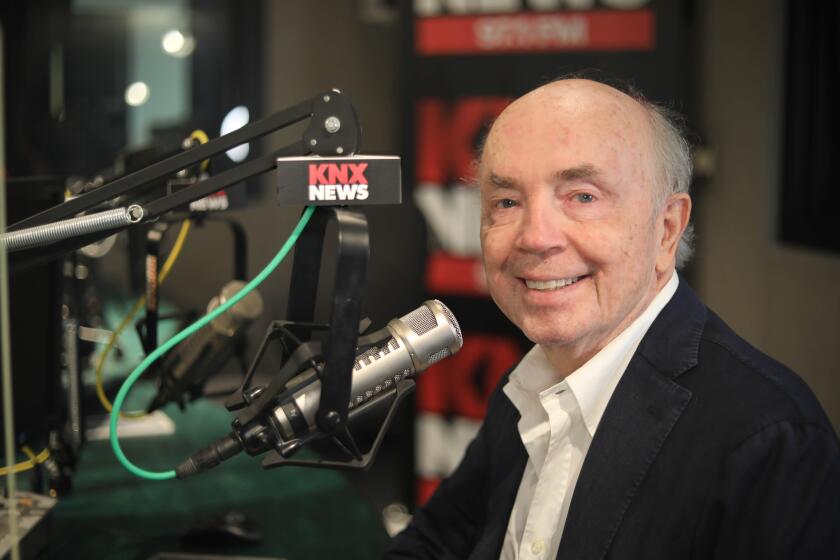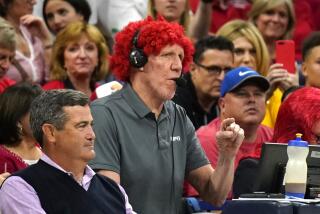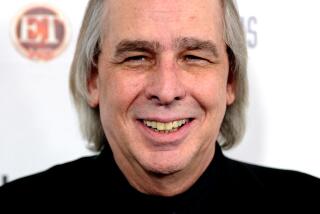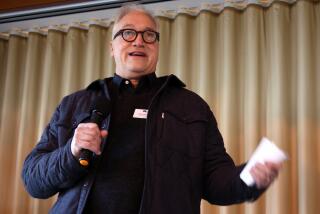Norman Pattiz, media entrepreneur who founded radio network Westwood One, dies at 79
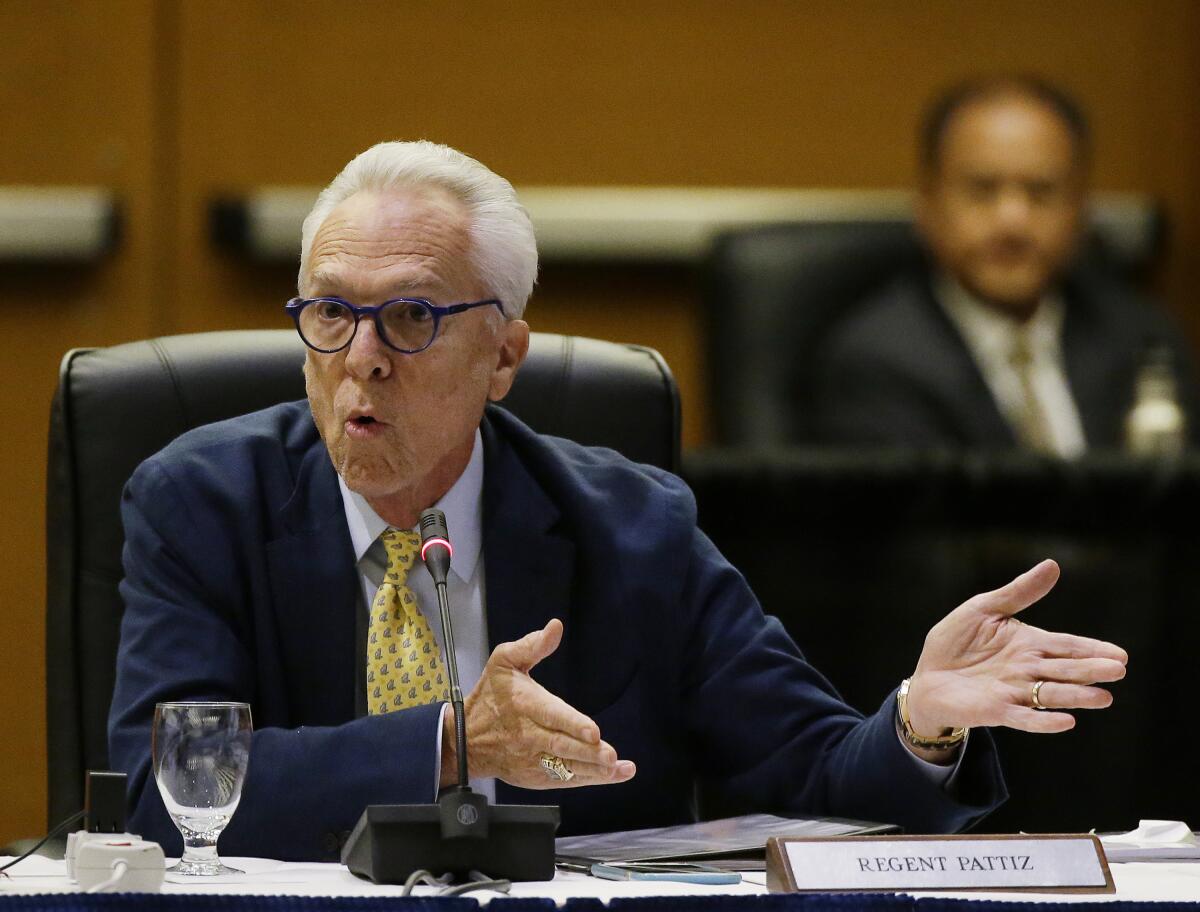
- Share via
Norman Pattiz, a media entrepreneur who created the Westwood One radio network that brought rock concerts and personalities such as Larry King and Casey Kasem to millions of listeners, has died at 79.
Pattiz’s death was confirmed by Westwood One, now owned by Cumulus Media. The company did not disclose the cause of death.
“With Norm Pattiz’s passing, we have lost a true media visionary,” said Suzanne Grimes, president of Westwood One and executive vice president for Cumulus. “He founded Westwood One, which grew to become the largest radio network in the United States and one of the top media companies in the world. His legacy lives on in all of us at Westwood One.”
The Los Angeles Lakers paid tribute Tuesday to Pattiz, a courtside regular at the NBA team’s games at the Forum and Crypto.com Arena (formerly known as the Staples Center).
“Norm Pattiz and his rolled-up game program were fixtures at Lakers home games for decades,” the team said on its Facebook page. “We will always treasure his spirit for the game and love for the team. He will be missed.”
Art Laboe filled the Southern California’s airwaves for more than 70 years
An alumnus of Alexander Hamilton High School in Los Angeles, Pattiz was a TV advertising sales executive who went out on his own in the mid-1970s to form Westwood One, which distributed programs to radio stations across the country that carried national commercials.
At the time, radio networks were largely providers of newscasts and sports events. Pattiz developed and sold programs that reached pop music consuming young listeners on a national scale.
After succeeding with a Motown special, Westwood One launched several series, including “Dr. Demento,” the novelty record show hosted by Barry Hansen, and “Off the Record,” a contemporary music interview program hosted by Mary Turner, a disc jockey at Los Angeles outlet KMET who became Pattiz’s wife. The company sold recorded rock concerts to stations as well.
Westwood One grew rapidly and went public in the 1980s. The company acquired the Mutual Broadcasting System, which carried Larry King’s syndicated talk radio program. Pattiz also bought the NBC Radio Network from NBC’s owner at the time, General Electric.
Pattiz scored a major coup in 1988 by luring “American Top 40” host Casey Kasem away from ABC Radio to join Westwood One as host of a new music countdown show. The company eventually gained the rights to “American Top 40” as well.
‘L.A.’s Morning News’ with Mike Simpson, Vicky Moore and Jennifer York starts Monday on Audacy’s all-news radio station.
The deals made Westwood One the largest supplier of radio programming in the country.
Pattiz also acquired radio stations, including Los Angeles soft rock outlet KIQQ, which was renamed KQLZ and became Pirate Radio, a hard rock format that surged in the ratings in 1989.
After being a favorite on Wall Street, Westwood One’s stock slumped and the company became highly leveraged. In 1994, Infinity Broadcasting purchased a major stake in Westwood One and took over its management. Pattiz remained its public face.
Pattiz left Westwood One in 2010 after it was taken over by Cumulus Media.
He launched a new company in 2013, PodcastOne, making him an early player in the then-emerging on-demand audio format. Comedian Adam Corolla’s podcast was among the company’s program offerings.
Pattiz also served as a University of California Regent for 16 years, He stepped down at the end of 2017 following a controversy over crude sexist remarks he made to Heather McDonald, a Los Angeles comedian, while she was recording a bra commercial for her podcast.
He apologized and also took sexual harassment prevention training.
Pattiz was a friend of former President Clinton, who appointed him to the United States Broadcasting Board of Governors. Pattiz continued in the role under former President George W. Bush’s administration. The BBG oversees all U.S. nonmilitary international broadcast services.
He also served on the board of the USC Annenberg School for Communication and Journalism.
More to Read
Inside the business of entertainment
The Wide Shot brings you news, analysis and insights on everything from streaming wars to production — and what it all means for the future.
You may occasionally receive promotional content from the Los Angeles Times.

